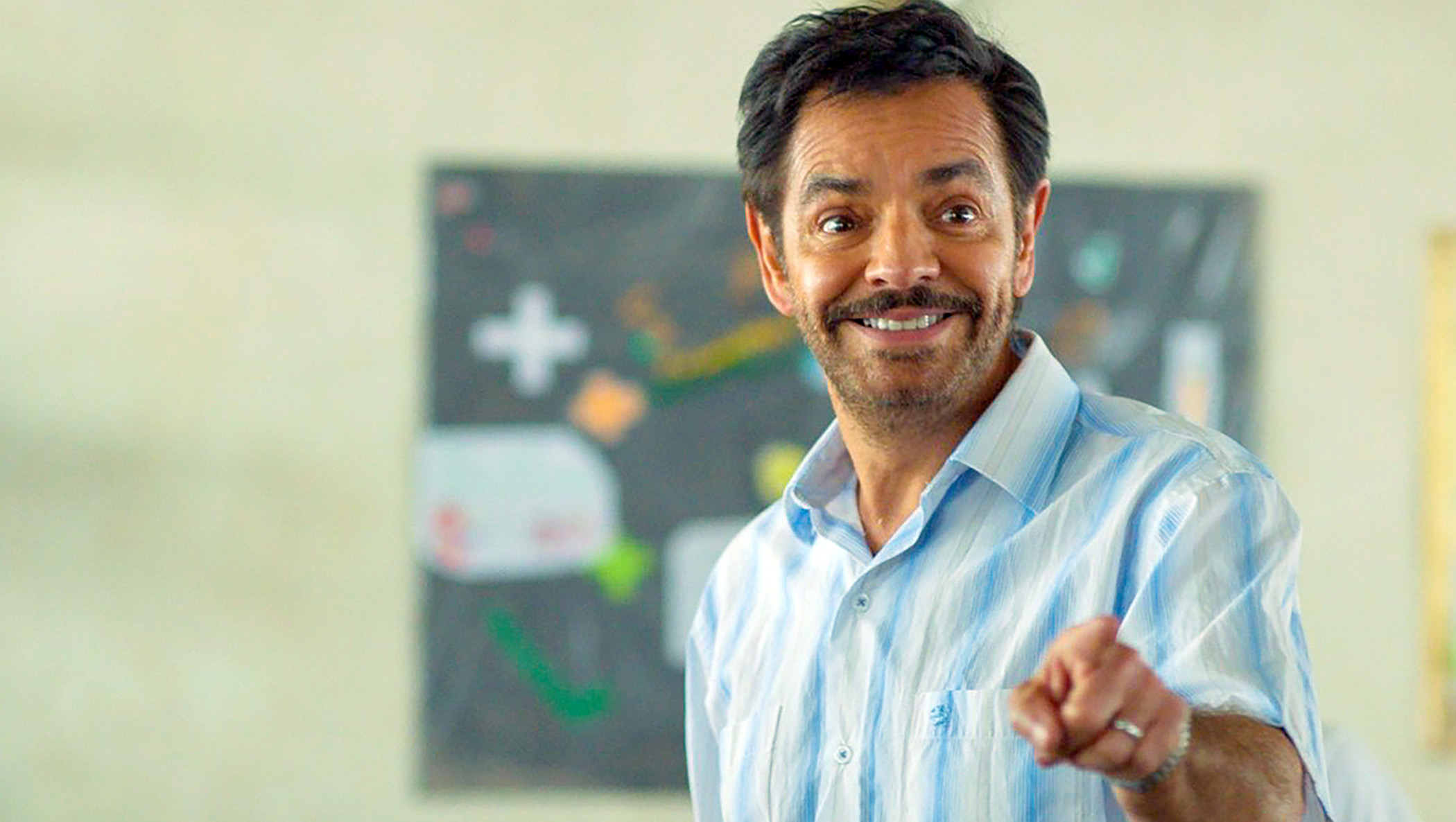When Eugenio Derbez (CODA) first read about the students at José Urbina López Primary School, he was immediately drawn to their story. In 2013, Wired magazine profiled the school, which is located in a poor community in Matamoros, Mexico. It had experienced an inspirational change when sixth grade teacher Sergio Juárez Correa found a way to connect with his students through unconventional teaching methods. In doing so, he discovered their untapped potential.
One of those students, 12-year-old Paloma Noyola Bueno, ended up recording the highest math score in all of Mexico on its national standardized test. Wired described her as “The Next Steve Jobs.†Not only was Derbez impressed with the things Correa was able to accomplish, he knew his story could be adapted into the kind of film about Mexicans he wanted to bring to Hollywood.
“When [Wired] approached us with the story, I immediately said yes,†Derbez, 62, told Remezcla during a recent interview. “I wanted to tell a positive story about my country because usually in the United States, you’re always watching negative news about Mexico. [Radical] is a very positive story about someone trying to make a change in the system.â€
Telling these stories is something Derbez has focused on in recent years. Known mostly for his comedic roles as an actor in Mexico, Derbez entered into America’s public consciousness a decade ago when his Mexican comedy-drama Instructions Not Included became the highest-grossing Spanish-language film to ever open in North America.
Derbez continued to combine comedy and drama in other projects like The Valet and CODA, which won the Academy Award for Best Picture last year. He also starred and served as the executive producer on the AppleTV+ series Acapulco, which was renewed for a third season earlier this year. Don’t hold your breath for Derbez to star in a drug cartel movie or TV series anytime soon.
“There’s another side of Mexico that [Hollywood] is not showing,†Derbez said. “There are Mexicans like Sergio who can change the world with no resources. Those are the stories I like to tell.â€
Going into production on Radical, Derbez thought that portraying someone who exists in real life was going to be “very challenging and intimidating.†He found it incredibly useful when he got the opportunity to meet Correa and ask him about his experiences in the classroom.
“I wanted to be faithful to his personality,†Derbez said. “When I was preparing for my character, I asked him about how he connected with the kids and what kind of activities he was doing with them in class.â€
Derbez wants a film like Radical to show people that no matter a child’s circumstances, each one of them should get the chance to pursue their dreams and what makes them happy.
“Every kid should have access to education,†Derbez said. “It’s the least we can do to try to help them develop their potential. I hope [Radical] can change minds and move hearts to finally give them what they deserve.â€
This interview was first published at Remezcla.com.

